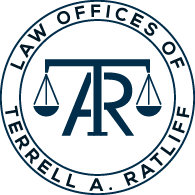When Shocking Events Elsewhere Echo in the Garden State
On June 25, 2025, a disturbing case reported by WSAW-TV in Surprise, Arizona revealed that multiple fifth-grade girls had allegedly conspired to murder a classmate and stage the death as a suicide. The students meticulously organized roles, concealed a weapon in a backpack, and even prepared a forged suicide note. Their plot unraveled when other students alerted school staff, likely preventing a tragedy.
Though this happened outside New Jersey, it raises serious legal questions relevant here. Can a child be charged with attempted murder in NJ? Could such juveniles be tried as adults? What are schools legally obligated to do in the face of threats from within? This article explores those questions through the lens of New Jersey law, educational policy, and juvenile mental health.
Juvenile Competency and Capacity in New Jersey
New Jersey’s Family Court system focuses on rehabilitation over punishment. Those under 18 who are accused of criminal acts are adjudicated for delinquency rather than crimes. The emphasis is on restoring and supporting young individuals, not branding them with permanent records.
In cases involving serious or premeditated conduct, however, the issue of competency becomes central. In State v. G.C., 248 N.J. 378 (2021), the court reaffirmed that juveniles must have the capacity to understand proceedings and consult with their attorneys. Mental health assessments are standard in such cases, particularly when the accused is very young. This ensures that children comprehend the nature of their actions and the process unfolding around them.
Learn more about juvenile defense attorneys in New Jersey
When the Juvenile System Reaches Its Limits
Under N.J.S.A. 2A:4A-26, prosecutors can request that juveniles aged 15 or older be tried in adult court if charged with grave offenses like murder or attempted murder. But what happens when children younger than 15 commit similarly serious acts? As the Arizona case illustrates, age may not always reflect the sophistication of a juvenile’s planning.
Current New Jersey law prohibits waiver to adult court for those under 15, but unusual and extreme cases could drive a shift in legal interpretation or prompt legislative change. If a similarly detailed murder plot occurred in New Jersey, even involving pre-teens, pressure would mount on the legal system to reconsider age thresholds.
Explore criminal defense services in New Jersey
Charges a Young Offender Might Face
Should such a conspiracy unfold in Camden or Cherry Hill, several charges could be brought in Family Court. These might include conspiracy to commit murder, attempted murder, possession of a weapon for unlawful purposes, and even terroristic threats. Although adjudicated within the juvenile framework, these offenses carry significant consequences. Depending on the evidence, outcomes could range from out-of-home placement to intensive psychological intervention.
Legal Duties of New Jersey Schools in Threat Scenarios
In New Jersey, schools are not passive observers when student threats arise. By law, they must respond immediately. Under N.J.A.C. 6A:16-5.5, any credible threat of violence must be reported to law enforcement without delay. N.J.S.A. 18A:41-1 further requires districts to activate safety protocols, including school threat assessments, security plan implementation, and parental notifications.
These measures are designed to ensure swift responses, prioritize student safety, and reduce liability. In districts across South Jersey, school safety officers and psychologists work hand-in-hand with law enforcement to evaluate and manage potential threats.
Mental Health and the Role of DCPP
The court’s response doesn’t end with legal proceedings. In cases involving violent behavior among children, mental health becomes a pivotal concern. The Family Court, guided by N.J.S.A. 2A:4A-43, can mandate comprehensive evaluations and ongoing therapeutic treatment.
If concerns extend to a child’s home life—such as signs of neglect, abuse, or instability—the Division of Child Protection and Permanency (DCPP) may intervene. These investigations can influence both the court’s decisions and the child’s placement.
Public Policy and the Future of Juvenile Law in NJ
Cases like the one in Surprise, Arizona, are more than headlines—they are catalysts. They invite scrutiny of whether our legal system is equipped to handle the growing complexity of youth conduct. In New Jersey, lawmakers may soon be forced to revisit statutes that set the waiver age at 15. Should courts be given discretion in extreme cases involving younger juveniles?
The state’s rehabilitative philosophy has served many well, but public safety concerns may demand exceptions. Legislators, courts, and community stakeholders must weigh these competing priorities with clarity and care.
Conclusion: Balancing Accountability with Compassion
The Arizona plot is a sobering reminder that children, though young, are capable of deeply troubling behavior. In New Jersey, our legal framework emphasizes compassion and second chances. But when faced with extreme conduct, even the most rehabilitative systems must respond decisively.
Our laws must evolve in tandem with societal risks. For communities in Camden, Cherry Hill, and Gloucester County, proactive legal guidance is critical to ensuring that schools, courts, and families are prepared.
Contact the Law Office of Terrell A. Ratliff for experienced legal counsel in matters of juvenile justice, education law, and public safety protocols.
For full coverage of the incident referenced in this article, see:
Multiple 5th grade girls arrested for murder plot in Surprise, Arizona – AZFamily (June 25, 2025)
